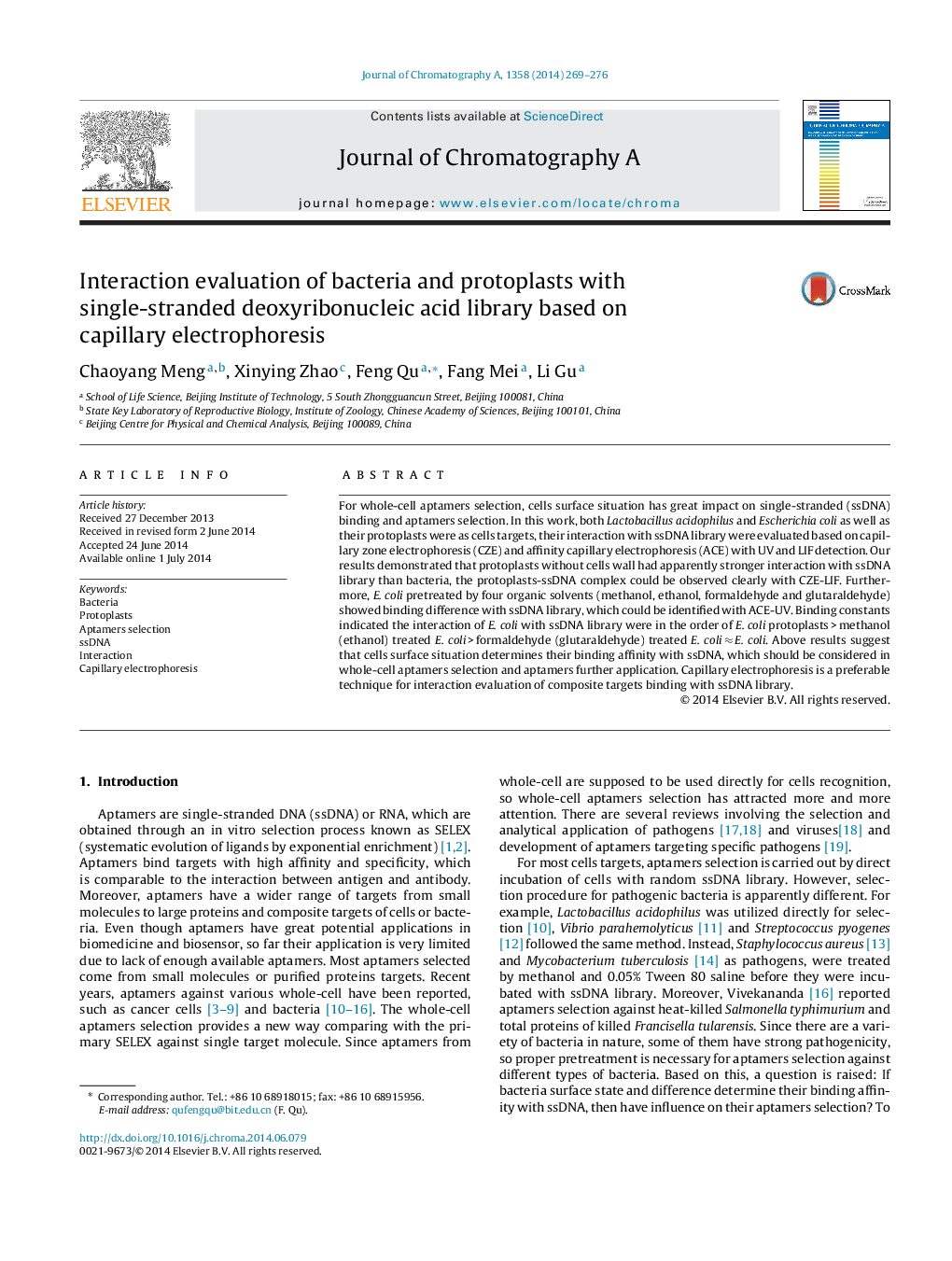| Article ID | Journal | Published Year | Pages | File Type |
|---|---|---|---|---|
| 7612798 | Journal of Chromatography A | 2014 | 8 Pages |
Abstract
For whole-cell aptamers selection, cells surface situation has great impact on single-stranded (ssDNA) binding and aptamers selection. In this work, both Lactobacillus acidophilus and Escherichia coli as well as their protoplasts were as cells targets, their interaction with ssDNA library were evaluated based on capillary zone electrophoresis (CZE) and affinity capillary electrophoresis (ACE) with UV and LIF detection. Our results demonstrated that protoplasts without cells wall had apparently stronger interaction with ssDNA library than bacteria, the protoplasts-ssDNA complex could be observed clearly with CZE-LIF. Furthermore, E. coli pretreated by four organic solvents (methanol, ethanol, formaldehyde and glutaraldehyde) showed binding difference with ssDNA library, which could be identified with ACE-UV. Binding constants indicated the interaction of E. coli with ssDNA library were in the order of E. coli protoplasts > methanol (ethanol) treated E. coli > formaldehyde (glutaraldehyde) treated E. coli â E. coli. Above results suggest that cells surface situation determines their binding affinity with ssDNA, which should be considered in whole-cell aptamers selection and aptamers further application. Capillary electrophoresis is a preferable technique for interaction evaluation of composite targets binding with ssDNA library.
Related Topics
Physical Sciences and Engineering
Chemistry
Analytical Chemistry
Authors
Chaoyang Meng, Xinying Zhao, Feng Qu, Fang Mei, Li Gu,
